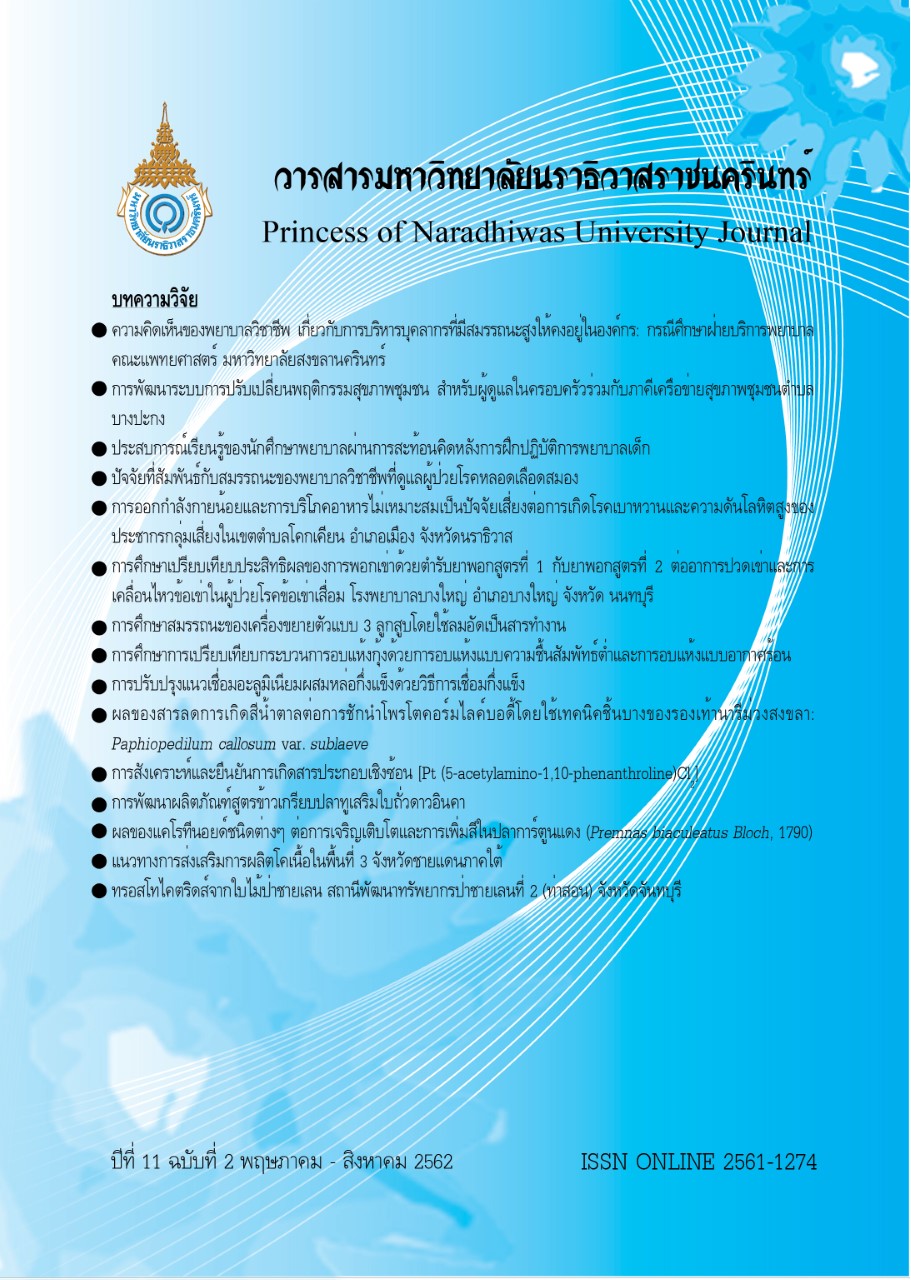Solving a Vehicle Routing Problem with Time Window for Transportation Service Planning for Elderly People: A Case Study of Hatyai District Songkhla Province
Abstract
In this paper, we provide some insights to this problem called Home to Hospital Transport Planning (HHTP) for Elderly who need to go to the hospital without personal car. In other word, Door to Door service with timetable is employed to reduce transportation cost. The case study is Hatyai District, Songkhla Province, Thailand. The number of elderly people visiting the hospital for doctor appointment by themselves are almost 150,000 trips per year. In this view point we use an algorithm with standard VRPTW problem in ArcGIS 10.2 software to solve this problem. The result shows that the distance can be decrease 65.64 percent from 2,619,334.80 km./year to 657,000 km./year, and we compare the various types of transportation currently in Hatyai District with HHTP to shows different types of services, schedules, coverage, and fares.
References
Chaiwuttisak, P., Sukka, K., Sawasdee, C., Daengsai, W., Buathong, S., & Warachan, B. (2018). Vehicle Routing Problem for Construction Materials. The Journal of KMUTNB, 28(2), 427-438.
Chanasit, C., & Yaovasuwanchai, S. (2013). Development on Vehicle Routing Problem: A Case Study of a Transportation Service Provider. WMS Journal of Management, 2(1), 55-69.
Dantzing, G. B., & Ramser, J. H. (1959). The Truck Dispatching Problem. Management Science, 6(1), 80-91.
Ketsarapong, P., & Choo-ngern, A. (2015). Transportations management of SME food processing. Kasem Bundit Engineering Journal, 39-55.
Klinplub, N., & Yaovasuwanchai, S. (2017). Mathematical Modeling of Vehicle Routes with Unlimited Capacity: A Case Study of a Frozen Food Transporter. Thai Journal of Operations Research, 12-25.
Letchford, A. N. (1996). Allocation of School Bus Contracts by Integer Programming. The Journal of the Operational Research Society, 47(3), 369-372.
Nasser, E.-S. A. (2010). Vehicle routing with time windows: An overview of exact, heuristic and metaheuristic methods. Journal of King Saud University (Science), 22, 123–131.
National Statistical Office. (2016). Retrieved 2017, from https://service.nso.go.th/nso/web/survey/survey_pop.html
Sealee, P., Wijitpongsa, W., & puangyam, H. (2017). The Case Study of “Ratsamee 2015 Limited Partnership” : A Vehicle Routing Problem Solved using Linear Programming. Industrial Technology Lampang Rajabhat University Journal, 10(1), 48-59.
Sodsoon, S., Kornvirat, S., & Sodsoon, N. (2014). Simulated annealing (SA) to vehicle routing problems with soft time windows. KKU Engineering Journal, 41(4), 449-461.
Solomon, M. M. (1983). Algorithms for the Vehicle Routing and Scheduling Problems with Time Window Constraints. The Journal of the Operational Research Society, 35(2), 254-265.
Suen, S. L., & Sen, L. (1999). Mobility Options for Seniors. Transportation in Aging Society: A Decade of Experience, (97-113). Bethesda,Maryland.
Supakdee, K., Nanthasamroeng, N., & Pitakaso, R. (2015). Solving a Vehicle Routing Problem for Medical Equipment Maintenance by Saving Algorithms : A Case Study of Ubon Ratchathani Provincial Health Office. Princess of Naradhiwas University journal, 23-35.
Warahat, J. (2015). Exccellence center of elderly. ( Boromarajonani College of Nursing,Songkhla) Retrieved April 22, 2017, from https://www.bcnsk.ac.th/elderly/




